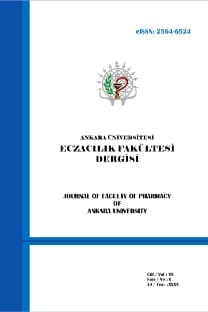SERBEST ECZANEDE DİYABET HASTALARININ EĞİTİMİ (BULGARİSTAN PİLOT PROJESİ)
Bu çalışmanın amacı Diyabet hastalarının serbest eczanede eğitim programının adapte edilmesi ve denenmesidir. Çalışmalarda; deneme grubu, tip 1 monoterapili ağır komplikasyonları olmayan tip 2 ve tip 14 diyabet hastalarından oluşmuştur. Hastanın memnuniyetini yansıtmak üzere araştırmanın başlangıcı ve sonunda (DSÖ’nin refah endeksinin 5 belirtisini içeren) bir anket uygulanmıştır. Diyabet ile ilgili genel sorun ve komplikasyon konusunda 5 aylık eğitim düzenlenmiştir. Programa ilişkin bütün giderler hasta başına hesaplanmış olup gelir-sonuç oranı gösterilmiştir. İki gruptan hastaların diyabet konusundaki bilgilerinde gelişme, hafif hipoglisemi olaylarının sıklığında azalma (örneğin, tip 2 diyabet hastalarında yaklaşık % 60 oranında, tip 1 diyabet hastalarında ise % 5 oranında azalma) ve kan şekeri değerlerinin (tip 2 diyabet hastalarında istatistik açıdan önemli olan) azalması izlenmektedir. DSÖ’nin endeksine göre tip 2 diyabet hastalarının genel yaşam kalitesi % 29’ dan % 44’ e, tip 1 diyabet hastalarının yaşam kalitesi ise % 58.57’den % 70.28’ e yükseldi. Kan şekeri değerindeki azalmanın ara sonucu bazında hesaplanan gidersonuç oranı tip 2 diyabet hastalarında 7.5€, tip 1 diyabet hastalarında ise 42,86 € oldu. Eğitim programı uygulanmasının diyabet hastalığının hafif komplikasyonlarını azaltma potansiyeli ile diyabet ile ilgili giderleri indirebilir, ayrıca hastanın memnuniyetini yükselterek eczaneleri sağlık eğitimi kaynağı olarak tanıtacak ve programın sağlık giderlerinigeri ödeme sistemi tarafından teşvik olunmasına yol açacaktır
Anahtar Kelimeler:
Serbest eczane, Diyabet, Hastaların Eğitim Programı, Farmasötik bakım, Farmasötik eğitim
EDUCATION OF PATIENTS WITH DIABETES IN THE COMMUNITY PHARMACIES (PILOT PROJECT IN BULGARIA)
The objective of this study is to adapt and test a community pharmacy educational program for diabetes patients. In the study; The sample consisted of 24 type 2 and 14 type 1 diabetes patients on monotherapy, without severe complications. A patient satisfaction questionnaire (WHO five wellbeing index) was applied in the beginning and at the end of the survey. A five-month education was conducted on common problems and complications of diabetes. The whole program costs were calculated per patient and costeffectiveness ratio was presented. Improvement was observed in patients’ diabetes knowledge in both groups, decrease in the frequency of minor hypoglycemic incidents (about 60% less for type 2 and 5% less in type 1diabetes group) and the blood glucose level (statistically significantly in type 2 diabetes patients). The total quality of life according to WHO index increased significantly from 29 to 44% and from 58.57 to 70.28% in diabetes type 2 and 1 patients respectively. The cost-effectiveness ratio calculated on the basis of the intermediate result that is decrease in the blood glucose level per patient is 7.5€ and for type 2 and 42,86 € for type 1 diabetic patients. Introduction of the education program has the potential to decrease the minor diabetes complications and from there - the economic cost of the diabetes as well to improve patient satisfaction and will promote the pharmacies as a source of health education and should be encouraged through the general reimbursement system
Keywords:
Community pharmacies, Diabetes, Patients education program, Pharmaceutical care, Pharmaceutical education,
- ISSN: 1015-3918
- Yayın Aralığı: Yılda 3 Sayı
- Başlangıç: 2016
- Yayıncı: Ankara Üniversitesi Eczacılık Fakültesi
Sayıdaki Diğer Makaleler
SERBEST ECZANEDE DİYABET HASTALARININ EĞİTİMİ (BULGARİSTAN PİLOT PROJESİ)
KOLONA HEDEFLENEN İLAÇ TAŞIYICI SİSTEMLER
Şengel TÜRK CEYDA TUBA, Canan HASÇİÇEK
TOHUMLARINDAN İZOLE EDİLEN ARCTİİN’İN ANTİBAKTERİYEL AKTİVİTES
Muhittin ARSLANYOLU, F. Zerrin ERDEMGİL
MUTASYON , DNA HASARI ,ONARIM MEKANİZMALARI VE KANSERLE İLİŞKİSİ
